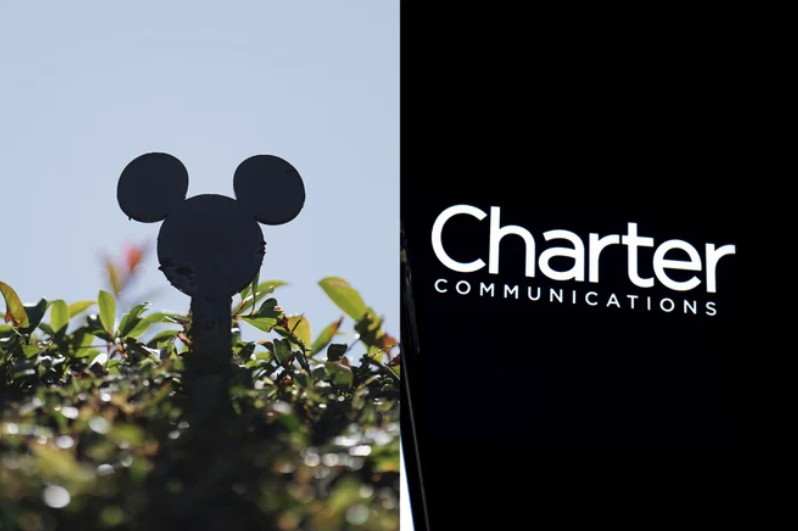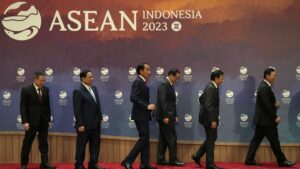Disney and Charter are currently embroiled in what is commonly referred to as a “carriage dispute.” In the technical jargon used in the cable television industry, companies such as Disney, which supply channels with content, are categorized as “programmers.” On the other hand, companies like Charter, which offer bundled channel packages to consumers, are known as “MVPDs,” which stands for multichannel video programming distributors.
Programmers generate revenue by imposing carriage fees on MVPDs for the inclusion of their channels within the bundled packages, as well as through the sale of advertising slots on those channels. MVPDs, in turn, charge viewers for these bundled packages and receive a modest portion of the advertising slots. This is why you often see a mixture of national advertisements for major brands, local advertisements for car dealers and furniture stores, and promotions for the cable service itself during commercial breaks.
During the initial stages of the cable cord-cutting era, programmers had a strategy to counteract their declining subscriber numbers. They achieved this by engaging in negotiations for increased carriage fees per subscriber whenever their contracts were due for renewal. If these negotiations hit a standstill, both parties would resort to presenting their arguments to the viewers.
Programmers would convey to viewers that MVPDs were attempting to deprive them of their beloved shows, while MVPDs would allege that programmers were responsible for inflating subscription bills.
In the previous week, discussions between Charter and Disney regarding contract fees became a matter of public concern as they failed to come to an agreement. This resulted in millions of consumers throughout the United States losing access to Disney-owned networks such as ESPN and FX.
On Thursday, Charter’s CEO, Chris Winfrey, indicated that the outcome of the dispute would ultimately be determined by Disney. He emphasized as well that both companies are keenly aware of the need to expedite a swift resolution to the matter.
Disney’s most recent statement further underscores the ongoing deadlock in negotiations.
“It’s unfortunate that Charter decided to abandon their consumers by denying them access to our great programming,” Disney said Thursday. “The question for Charter is clear: Do you care about your subscribers and what they’re telling you they want — or not? Disney stands ready to resolve this dispute and do what’s in the best interest of Charter’s customers.”
Disney also mentioned that Charter, a prominent pay TV provider in the United States, has turned down several proposals to prolong the negotiation period prior to the blackout on August 31st.
While carriage disputes and service blackouts are regular occurrences in the industry, Charter’s bold stance on the pay TV model and its call for programmers, such as Disney, to offer their streaming services to cable customers without added expenses, has created significant ripples in an industry currently wrestling with cord-cutting challenges. This comes at a time when the streaming sector is still striving to turn a profit.
In an unusual step, Charter CEO Chris Winfrey and company executives conducted an investor call immediately after Disney channels became unavailable to Charter customers. During the call, they revealed their proposal for a revised agreement with Disney. Under this proposal, Charter’s Spectrum cable subscribers would gain complimentary access to Disney’s ad-supported streaming services, including Disney+, ESPN+, and Hulu.
This particular proposal appears to be the key issue at the heart of the ongoing negotiations. Charter expressed its willingness to meet Disney’s requested fee increase, suggesting that the matter revolves around the integration of streaming services into the cable package at no additional charge.
On Thursday, Winfrey emphasized a significant concern regarding content companies like Disney. He pointed out that these companies tend to treat streaming as a completely separate business, despite a substantial portion of their revenue coming from the traditional pay TV bundle.
In a noteworthy statement last week, Winfrey indicated that the pay TV model is flawed and in need of reform to ensure its survival.
In response, Disney countered by stating that Charter declined to reach an agreement even after being presented with favorable terms, without providing specific details. Disney also highlighted the distinction between its traditional TV networks and streaming services, asserting that they are not equivalent and therefore should not be bundled together for free with cable TV subscriptions.
(Source: Jack Hough | Barrons | Lillian Rizzo | CNBC)









